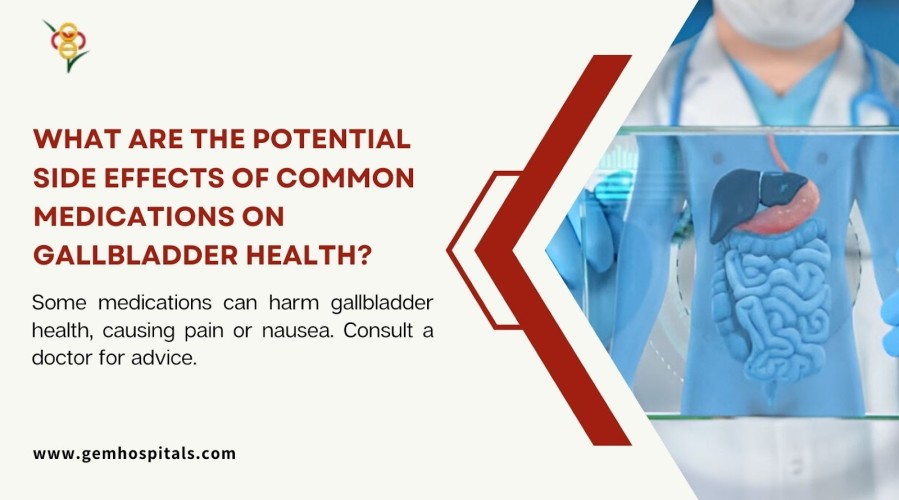Learn effective solutions for digestive problems with expert tips to improve gut health, reduce discomfort, and maintain a healthy digestive system.
What Are the Potential Side Effects of Common Medications on Gallbladder Health?

The gallbladder is a small hollow organ located under the liver, which holds bile – a substance needed for the digestion of fats. Most individuals do not know that certain drugs that are helpful can affect the gallbladder and cause problems such as gallstones or cholecystitis. Knowing the possible side effects of these drugs will assist you in preventing the deterioration of your gallbladder.
Medications That May Affect Gallbladder Health
1. Hormonal Medications
Hormonal drugs such as contraceptive pills and hormone replacement therapy drugs can cause issues in the gallbladder. Estrogens can inhibit the bile secretion thus enhancing the risk of formation of gall stones. Female patients who take these drugs have a higher risk of developing gallstones, so patients should be checked for any signs of discomfort or pain in the abdomen.
2. Cholesterol-Lowering Drugs (Statins)
Statins are used for the prevention of heart diseases and they also lead to various gallbladder issues. These drugs may raise cholesterol levels in bile and cause it to become more likely that gallstones will develop over time. In case you’re on statins, it is advisable to have your health checked by your doctor often to diagnose any complications.
3. NSAIDs (Non-Steroidal Anti-Inflammatory Drugs)
Ibuprofen and naproxen are examples of NSAIDs, and they are known to have an impact on the gallbladder indirectly. Common side effects of NSAIDs include inflammation of the digestive tract, which over time can affect the function of the gallbladder. Anyone who uses these medicines for long-term pain should consult with their physician to find other ways of managing pain that won’t harm their digestive systems.
4. Certain Antibiotics
Certain antibiotics may alter the composition of the bile or interfere with the normal micro flora of the gut. These changes may involve the gallbladder especially if inflammation of the bile duct is involved. Take antibiotics as directed and it is advised to see a doctor if you have any strange stomach problems during the course of the antibiotics.
5. Other Medications to Watch
Some antidepressants, diabetes medications and even steroids can affect the bile and the liver to some extent and in this way, affect the gallbladder. While the risk depends on the particular drug and the dose, it is always wise to talk to the doctor about any issues, if you are on several medicines.
Signs to Watch for Gallbladder Problems
If you’re on any of the medications mentioned above, watch out for these signs of potential gallbladder issues:
- Gallbladder – This organ might cause pain, particularly after a meal has been consumed.
- Nausea – One may often experience nausea if he or she has gallbladder issues.
- Gassiness – If you experience gassiness after eating then you may be having problems with your gallbladder.
- Indigestion – This is a sign that the body has a problem with the gallbladder if it is hard to digest fatty foods.
Protecting Your Gallbladder Health
It is recommended to discuss with your doctor possible side effects of any medication in case you have a family history of gallbladder issues. Eating right foods, exercising, and leading a healthy lifestyle are some of the best things that you can do naturally to support your gallbladder. Oh yes, and do not forget that you can go for check-ups and your doctor will be able to identify any problem and treat it before it is out of hand.
Conclusion
Drugs are useful in treating diseases but may have complications that affect the state of the gallbladder. These risks can be minimised by keeping updated with information and discussing any issues with your health care provider. If you require consultation regarding your gallbladder, you can go to GEM Hospital and Book Appointment with our experts.
Blogs & Article
Explore current research trends in digestive health, including new treatments, advanced diagnostics, and innovations improving gut health and patient care.
Discover common digestive health myths and the real facts. Learn simple tips to improve gut health and maintain better digestion for a healthier life.


